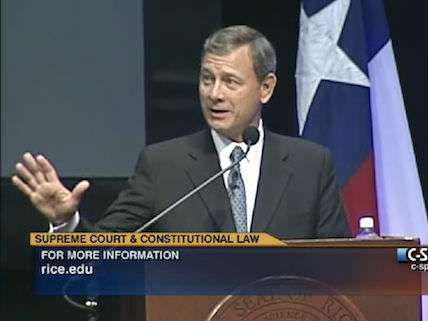Supreme Court Announces Major Victory for Cellphone Privacy

In a sweeping opinion handed down today, the U.S. Supreme Court ruled that the Fourth Amendment requires law enforcement officials to obtain a warrant before searching the cellphones of individuals they have placed under arrest.
"Modern cell phones are not just another technological convenience," declared the majority opinion of Chief Justice John Roberts in Riley v. California. "With all they contain and all they may reveal, they hold for many Americans 'the privacies of life.' The fact that technology now allows an individual to carry such information in his hand does not make the information any less worthy of the protection for which the Founders fought."
In his 28-page opinion, Roberts demolished the pro-law enforcement arguments put forward by the Obama administration and the state of California, both of which advocated in favor of allowing the police to conduct warrantless cellphone searches incident to arrest. Not only are such warrantless searches unnecessary to officer safety, Roberts observed, they are unnecessary to help secure the preservation of evidence. The government's position, he declared, is "flawed and contravenes our general preference to provide clear guidance to law enforcement through categorical rules."
In closing, the chief justice of the United States offered a striking affirmation of the Fourth Amendment's role in American life: "Our answer to the question of what police must do before searching a cell phone seized incident to an arrest is accordingly simple—get a warrant."
The Supreme Court's opinion in Riley v. California is available here.


Show Comments (161)